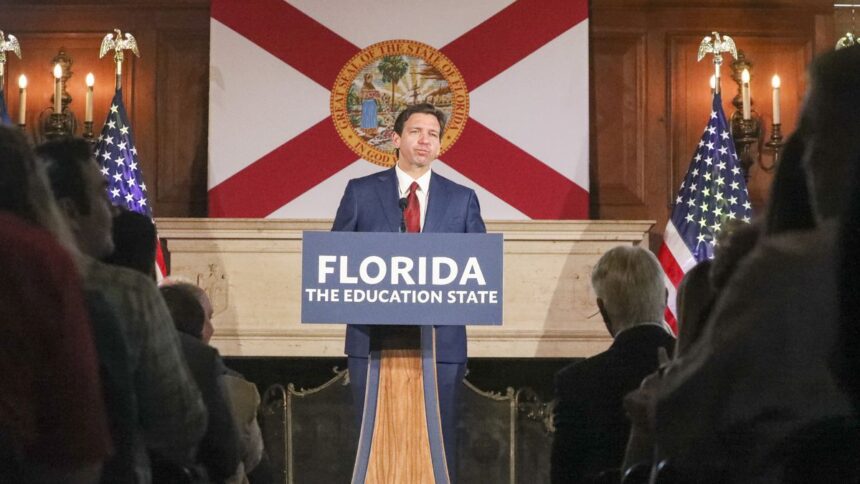Florida is the top state for education for the second year in a row, according to U.S. News & World Report’s latest ranking announced Tuesday.
The outlet said the state’s standing is “largely fueled by several stellar metrics in higher education, and less so by Florida’s still fairly strong performance in the prekindergarten- through-12th-grade arena.”
The recognition follows a period of controversial change in the last two legislative sessions for a system that includes 12 public universities and 28 state colleges. Gov. Ron DeSantis and lawmakers have banned diversity, equity and inclusion programs on campuses; approved a measure regulating campus restrooms according to gender; removed sociology from a required courses list; and weakened tenure protections for faculty, among other changes.
In a separate U.S. News ranking, Florida also landed in the No. 1 spot for higher education alone for the eighth year in a row. Students at the state’s colleges and universities had the nation’s second-highest graduation rates and paid the lowest average in-state tuition and fees, the organization said.
The state ranked No. 26 for the average amount of federal student loan debt held by young adults and No. 25 for the share of those 25 years old and above with at least an associate degree.
Many of Florida’s public universities have been climbing in the rankings in recent years. In September, the University of Florida dipped to No. 6 in the U.S. News rankings among public universities after being named a Top 5 school two years in a row. The school was recognized last week by Forbes as one of 10 public “new Ivies.”
“Governor DeSantis and the Florida Legislature have prioritized higher education and ensured our universities have the resources and support they need to focus on academic excellence and provide safe learning environments for all students,” State University System Chancellor Ray Rodrigues said in a news release.
Rodrigues said the state increased funding to the State University System by $1 billion last year.
Meera Sitharam, chairperson of the University of Florida’s faculty union, praised the state for investments in higher education that have kept tuition low. But she said the metrics don’t capture everything, and the recent climate around higher education in the state could erode the education students receive.
“The quality of education and what exactly (students) learn, is hugely connected to the culture and the values, including academic freedom,” she said. “I would say academic freedom is the fundamental value, which is absolutely, the grounds. Without academic freedom, everything will come crashing down. Education simply doesn’t exist. Even democracy won’t exist.”
Jessica Magnani, chairperson of the St. Petersburg College Faculty union, said the ranking was a testament to the work of educators across the state, but that salaries for teachers and faculty have not kept up with either the rise in rankings or the cost of living.
At St. Petersburg College, she said, starting salaries are $39,000 for full-time faculty roles. Florida recently ranked second-to-last of all states for teacher pay.
Catch up on top stories before rush hour
Become a Times subscriber to get our afternoon newsletter, The Rundown
We’ll break down Tampa Bay’s biggest environment, politics, business, education and culture news every weekday
You’re all signed up!
Want more of our free, weekly newsletters in your inbox? Let’s get started.
She also wondered if the state would maintain its rankings in years to come. “I think we’ve not yet seen the results of the legislation that recently passed,” she said.
In K-12 education, the state ranked No. 10 this year, U.S. News said.
It ranked No. 5 among states for college readiness, No. 12 for preschool enrollment and No. 19 for high school graduation rates.
Florida ranked No. 21 in reading scores from the National Assessment of Educational Progress, known as “The Nation’s Report Card.” In the same assessment, the state ranked No. 32 in math.
Utah ranked No. 2 for best education state overall and Massachusetts came in at No.3.
Divya Kumar covers higher education for the Tampa Bay Times, working in partnership with Open Campus.











